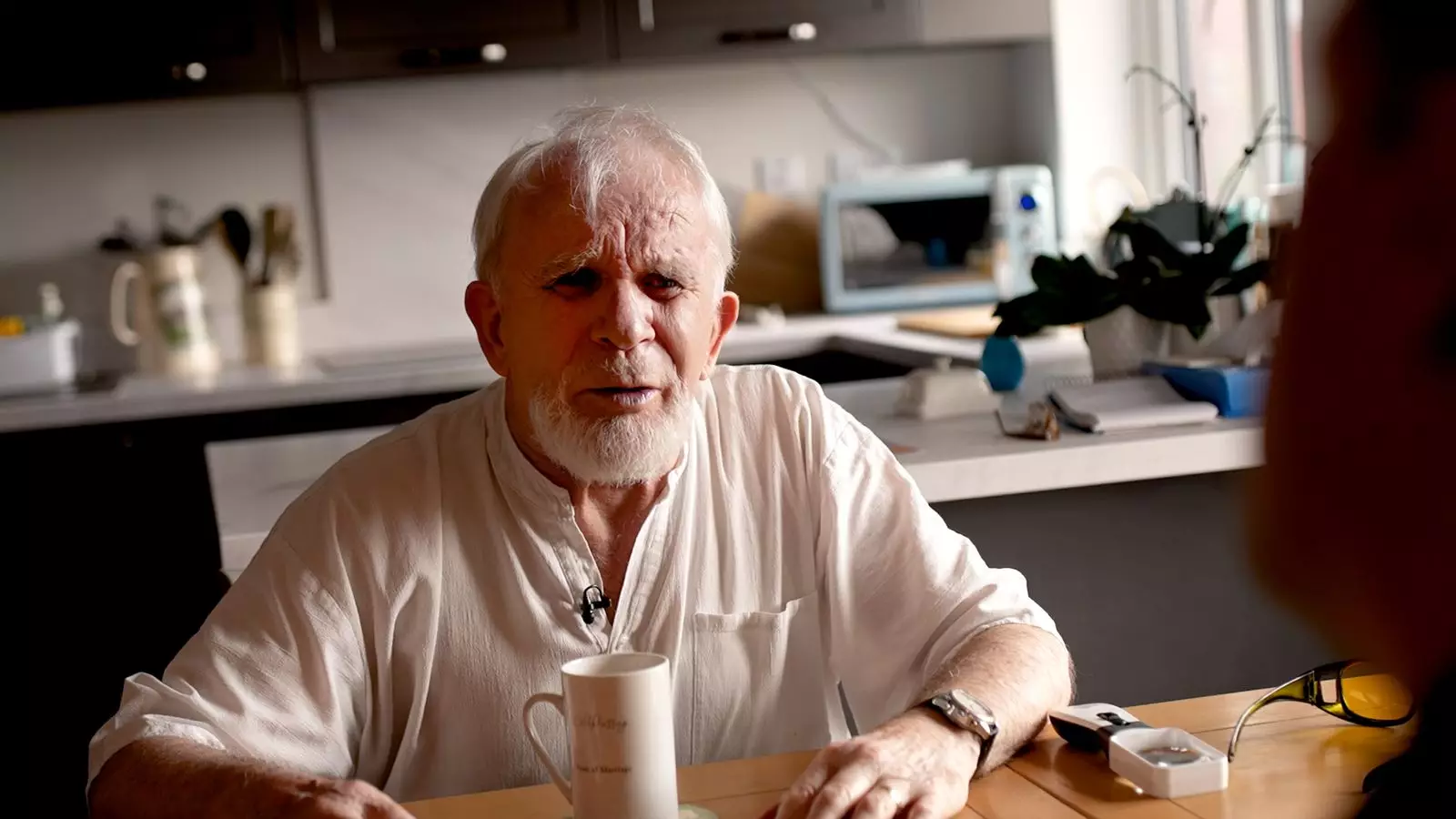As the winter months approach, many in the UK are bracing themselves for the financial cold front that is expected to hit particularly hard for the elderly. The recent government decision to limit the winter fuel payment has spurred a wave of anxiety and frustration among the aging population, prompting urgent discussions around welfare policies and their implications. The story of Kevin McGrath, an 81-year-old former social worker, exemplifies this growing concern among pensioners.
At 81, Kevin is recovering from a serious eye operation yet finds himself deeply troubled by the chilling prospects for the upcoming winter. Living in a modest two-bedroom apartment in Corby, Northamptonshire, he and his wife have opted to downsize to mitigate rising energy costs. Their financial situation is precarious: without a private pension, they rely solely on their state pension. The recent announcement by Chancellor Rachel Reeves—that winter fuel payments would be revoked for millions of pensioners unless they qualify for specific means-tested benefits—strikes him as an egregious oversight by the government.
Kevin describes the initiative as targeting those at the bottom of the economic spectrum, criticizing it as “evil” and “a crime.” This sentiment resonates with the broader narrative of neglect faced by the elderly, amidst an economic climate fraught with challenges.
The Government’s Position and Public Backlash
In light of the £22 billion shortfall in public finances, the government argues that such measures are necessary to ensure financial stability. However, this perspective has not earned them any goodwill among the elderly, with many viewing means testing as both humiliating and unjust. Kevin expresses his concern over the indignity that comes with having to prove financial ineptitude: “Who decides that we haven’t got enough money to live on?” His question encapsulates the discontent felt by many who have spent decades contributing to society only to feel belittled at a vulnerable age.
The anxiety surrounding this issue has spurred a significant increase in inquiries about Pension Credit—a key criterion for eligibility for the winter fuel payment. According to data from the charity Independent Age, calls regarding Pension Credit have tripled compared to earlier this year, demonstrating the anxiety and confusion among many older citizens as they navigate these new rules.
Mental health can significantly deteriorate when financial insecurity looms. Anxiety and stress are common among older adults, particularly those who grapple with newfound uncertainty regarding their income and support systems. Many individuals are feeling a deep sense of shame and embarrassment for seeking assistance—a notion that is troubling in a society that upholds the principles of welfare and support for the vulnerable.
Joanna Elson CBE, chief executive of Independent Age, pointedly outlines the fears of older individuals grappling with the possibility of losing essential financial assistance during a time when their living costs escalate. For many, the winter fuel allowance represents a vital lifeline, and withdrawing it is viewed as a move toward further marginalization of the already vulnerable elderly population.
While the government assures the public that other support mechanisms are in place, such as the commitment to maintain the triple lock on state pensions—which ensures annual increases aligned with inflation—it remains crucial to highlight that not all pensioners will benefit equally from these policies. Kevin reflects with disappointment on the apathy shown toward the elderly: “If you’re elderly and you’re not economically active, then you don’t matter,” he states, summing up the grotesque irony of excluding those who have contributed to society for decades.
Given the current trajectory, urgent calls for reconsideration are necessary. Advocacy groups urge the government to postpone implementation until there are adequate systems in place to assess eligibility for Pension Credit. There is a growing consensus that protecting the most vulnerable sections of society requires a compassionate approach, one that prioritizes human dignity over numbers on a financial spreadsheet.
Moving Forward: The Need for Balanced Solutions
The announcement regarding the winter fuel payment reflects a broader set of questions surrounding welfare policy and support for the elderly in the UK. As the cold months approach and financial strain intensifies, it becomes evident that the government must reassess their strategies. A balance must be struck between fiscal responsibility and social obligation, ensuring that those who have dedicated their lives to the nation are not left out in the cold. The plight of Kevin McGrath and others like him serves as a potent reminder of the need for empathy and inclusivity in formulating public policy.


Leave a Reply